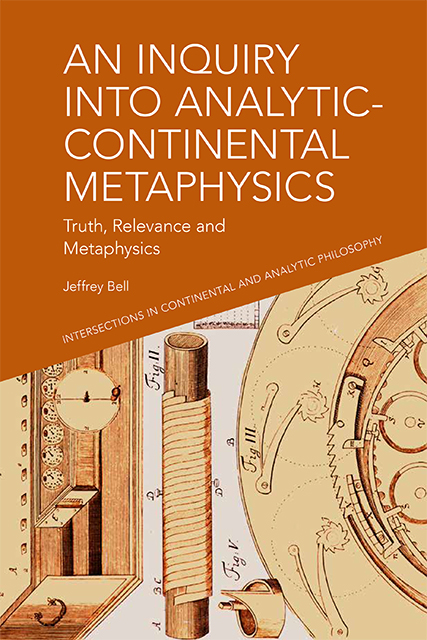Book contents
- Frontmatter
- List of Contents
- Acknowledgements
- Introduction
- §1 Problem of the New
- §2 Problem of Relations
- §3 Problem of Emergence
- §4 Problem of One and Many
- §5 Plato and the Third Man Argument
- §6 Bradley and the Problem of Relations
- §7 Moore, Russell and the Birth of Analytic Philosophy
- §8 Russell and Deleuze on Leibniz
- §9 On Problematic Fields
- §10 Kant and Problematic Ideas
- §11 Armstrong and Lewis on the Problem of One and Many
- 12 Determinables and Determinates
- 13 The Limits of Representational Thought
- 14 Learning from a Cup of Coffee
- 15 Carnap and the Fate of Metaphysics
- 16 Truth and Relevance
- Conclusion
- Bibliography
- Index
§6 - Bradley and the Problem of Relations
Published online by Cambridge University Press: 25 October 2023
- Frontmatter
- List of Contents
- Acknowledgements
- Introduction
- §1 Problem of the New
- §2 Problem of Relations
- §3 Problem of Emergence
- §4 Problem of One and Many
- §5 Plato and the Third Man Argument
- §6 Bradley and the Problem of Relations
- §7 Moore, Russell and the Birth of Analytic Philosophy
- §8 Russell and Deleuze on Leibniz
- §9 On Problematic Fields
- §10 Kant and Problematic Ideas
- §11 Armstrong and Lewis on the Problem of One and Many
- 12 Determinables and Determinates
- 13 The Limits of Representational Thought
- 14 Learning from a Cup of Coffee
- 15 Carnap and the Fate of Metaphysics
- 16 Truth and Relevance
- Conclusion
- Bibliography
- Index
Summary
1. TMA and Regress
We can quickly bring Bradley's arguments into the discussion by way of the problem of regress (or TMA). As we saw (§5.2), in the Parmenides the regress gets started by way of processes associated with self-predication (SP) and nonidentity (NI). If we take the One single Form, the Beautiful in the case of music as discussed above, then the Form of Beauty is itself beautiful. Plato is quite forthright in this regard when, in the Phaedo (100c), Socrates presumes that ‘whatever else is beautiful apart from absolute beauty is beautiful because it partakes of that absolute beauty, and for no other reason’. The beautiful sounds of music are in turn beautiful because they partake ‘of that absolute beauty’, and thus the Form and the many sounds related to music all share in the same quality – they are all beautiful. Since a beautiful thing, however, is (by NI) not to be identified with the Form it partakes in, we need a higher form to account for the shared quality of beauty the many sounds and the first Form of Beauty all have. This higher Form is itself beautiful, and in turn capable of being seen as such by virtue of yet another Form, which initiates, as we saw, the regress. It is precisely the shared quality of beauty (F-ness [as in §5.2]), and the relationship it has to that which has the quality, that brings about (by NI) Bradley's famous (or infamous) regress argument.
2. Bradley on Relations
Bradley's arguments against the reality of relations can be found in many places, and we will discuss them at some length (in the next section for instance), but the third chapter of Appearance and Reality, ‘Relation and Quality’, is the most relevant for our current purposes. The central argument of the chapter is to show that while the ‘arrangement of given facts into relations and qualities may be necessary in practice … it is theoretically unintelligible’ (Bradley 1893, 25). To restate the point made in the Introduction regarding Kant's observation that most of Hume's critics had misunderstood Hume's point, Bradley is likewise not contesting the relevance of relations and qualities, he simply argues that they are not ultimately justified in reality.
Information
- Type
- Chapter
- Information
- An Inquiry into Analytic-Continental MetaphysicsTruth, Relevance and Metaphysics, pp. 28 - 33Publisher: Edinburgh University PressPrint publication year: 2022
